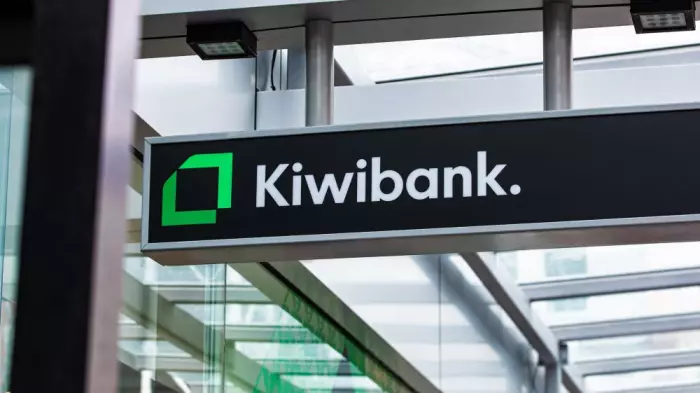VECTOR ANNOUNCES FULL YEAR RESULTS
FLLYR
Fri, Aug 25 2023 08:30 am
• Sale of 50% interest in Vector Metering delivers one-off gain of $1,509.9 million
• Continuing operations deliver $112.6 million net profit, exclusive of metering business
• Proceeds from Vector Metering transaction used to repay debt, as required under banking arrangements
• Special dividend of 5.5 cents per share, bringing final dividend to 14.0 cents per share
• Adjusted EBITDA(1) of $523.3 million, including $335.1 million from continuing operations(2)
• Capital expenditure of $700.4 million, includes $512.7 million for continuing operations
• Financial results include reports covering Taskforce for Climate-related Financial Disclosures and Green-House Gas Emissions Inventory, with decarbonisation central to Vector strategy
Vector Group (NZX: VCT) today announces strong performance across its portfolio for the 2023 financial year, highlighted by a successful transaction for a 50% interest in Vector Metering.
Vector Chair Jonathan Mason said, “A major highlight of the year has been the strategic divestment of a 50% interest in Vector Metering to QIC Private Capital Pty Limited (QIC). The partnership with QIC strongly positions Vector Metering to accelerate future growth opportunities in a significant market, underpinning the transition of the energy sector. This has resulted in a material drop in the company’s gearing. Vector is well placed for future investment in infrastructure required to support the decarbonisation of the economy, including electrification of transport, however regulatory settings must be changed to enable the level of investment required.
“The transaction resulted in a one off gain from sale of $1,509.9 million, with proceeds used to reduce debt. Underlying net profit from continuing operations, where consumer prices are largely strictly regulated, of $112.6m.
“The Board has determined that shareholders, many of whom are Aucklander-based beneficiaries of Entrust, will receive an unimputed final dividend of 14.0 cents per share, comprising an ordinary dividend of 8.5 cents and a special dividend of 5.5 cents in recognition of the gain from the sale of 50% of the metering business.
"Group net profit was $1,715.8 million, which includes the one off gain from sale of $1,509.9 million and Vector’s continuing and discontinued operations.
“Total capital expenditure was $700.4 million, up 28.3%, which was partly funded by capital contributions of $188.3 million. This reflects the trend of year on year increases continuing as the Group ramps up investment in infrastructure to support Auckland’s growth, at levels we believe are at or near the highest of any single entity involved in the energy transition in Aotearoa New Zealand.
“Another highlight from the year has been the ongoing work to challenge ourselves to further refine and mature our understanding and disclosure of climate risks and opportunities, which is exemplified in our leading TCFD report, now in its third year of publication.
“In my final year as Chair of the Vector Board, I’m pleased to step off as the Group continues to pursue its Symphony strategy to deliver a more affordable electrified future, where renewable energy is delivered efficiently, networks are optimised to reduce the need for large upgrades, and where ultimately consumers will have more energy choices, including producing and selling their own renewable energy.”
Group Chief Executive Simon Mackenzie said, “We’ve always been deliberate about thinking ahead to the future of the energy sector, and what will be needed to move us and the wider sector forward. With our joint venture of the metering business now established with QIC, it’s worth reflecting on what continues to make Vector unique; looking outside our immediate sector and establishing globally leading partnerships for innovation, and not being afraid to challenge the status quo. We’re looking forward to what’s next.
“We are continuing to work with our strategic alliance partner AWS, and on our industry-leading energy data platform, Diverge. In Auckland, we’ve taken a number of further steps to build a future electricity network where customer-side services and innovations play a much larger role in efficiently managing increasing demand.
“Most Aucklanders have felt the effects of the on-going wet weather but for some it has been devastating and life changing, with the Auckland floods and Cyclone Gabrielle hitting the region in the space of just two weeks, causing catastrophic damage. There is now a heightened awareness of the need for infrastructure resilience, which is why our strategy of building smart networks that are reliable, resilient, and affordable is so important. Furthermore, our analysis shows that the majority of the damage to our network was from vegetation, which underlines the urgency of decisions on vegetation management from Government that the industry has been seeking for nearly a decade.
“We continue to engage proactively on policy and regulatory reform to better support New Zealand’s decarbonisation journey and customer outcomes. New Zealand’s urgency to decarbonise transportation and industrial emissions provides Vector with opportunity to support, enable and drive progress in these areas. An increasingly critical example is the need for smart EV charging to avoid localised constraints as more and more EVs take to the road.
“We are in a critical decade for the energy sector, as demand for electricity grows more rapidly with electrification, and as electricity networks are faced with increased demands for resilience in the face of climate change. In this context, the distribution sector regulatory settings set by Commerce Commission are hugely important to Aotearoa New Zealand. We must choose the path of more resilience, more decarbonisation, more customer benefit, and more long-term affordability.
“We’re doing our part by laying the foundations for this on our own network, so that we can enable effective orchestration of load around peak times and integrate more flexible, cost-effective solutions to demand growth challenges. Outside of our network, we’re engaging widely to share thinking and advocate smart investment, including with other EDBs in our region via the Northern Energy Group, and we continue to develop tools to help others on their own journey.
“As the country’s largest electricity distributor Vector absolutely wants to continue to play our part in enabling electrification and doing it in the most affordable way possible for our consumers. However, alongside other electricity network companies, we can only do so within the bounds of the Commission’s strict regulatory returns and funding regime. In the period leading to the final Input Methodology decision, we will continue to strongly advocate for improved financeability to create a sustainable investment pathway to enable decarbonisation.”
Key financial information
Business segment (continuing and discontinued)
2023 2022 % movement
Regulated Networks
- Adjusted EBITDA $371.6m $355.8m +4.4%
- New electricity and gas connections 18,556 16,684 +11.2%
- Gross Capex $422.6m $331.9m +27.3%
- Net Capex $235.3m $181.6m +29.6%
Gas Trading
- Adjusted EBITDA $26.9m $21.9m +22.8%
- LPG sales (tonnes) 41,896 44,330 -5.5%
- Natural gas sales (PJs) 5.4 5.3 +1.9%
Metering (discontinued operation)
- Adjusted EBITDA $188.2m $173.7m +8.3%
- Advanced electricity meter fleet (NZ and Aus) 2,090,589 1,976,111 +5.8%
- Capex $187.7m $156.7 +19.8%
Other businesses
The Vector Powersmart performance can be subject to factors such as the timing of contract delivery and the year end result reflects this.
Vector Fibre has had a solid year with year on year revenue and earnings growth. This now transformed business is being received well by the wholesale fibre market in Auckland. New Hyperscale Data Centres and Mobile Operator 5G in-fill opportunities are now being pursued.
Vector Technology Solutions is the supplier of metering platform services to the newly established Vector Metering, and is continuing to take solutions to market and explore specific new opportunities in response to emerging international demand for the types of solutions it provides. These targeted investments are driving some additional costs.
HRV has had a challenging year in difficult trading conditions, with pressure on household discretionary spending. Resourcing pressure has moderated over the year, although the labour market remains tight.
Corporate cost is higher than the prior year due mainly to higher computer costs driven by an increase in digital projects that are expensed rather than capitalised. In addition accounting rule changes, and higher CPI increases, also contributed to higher costs.
Notes
(1) EBITDA and Adjusted EBITDA are non-GAAP measures which the directors and management believe provide useful information as they are used internally to evaluate performance of business units, to establish operational goals and to allocate
resources. For further details click on this link to see Vector’s policy
(2) The adjusted EBITDA result is made up of $335.1 million from continuing operations and $188.2 million from discontinued operations (being the metering operations).
ENDS
Vector’s full year financial statements, annual report, Taskforce for Climate-related Financial Disclosures report, and Greenhouse Gas Emissions Inventory report, are available here: vector.co.nz/reports
Investor contact
Jason Hollingworth, Chief Financial Officer, Vector
[email protected], 021 312 928
Media contact
Matthew Britton, Communications Manager, Vector
[email protected], 021 224 2966
About Vector
Vector is an innovative New Zealand energy company, which runs a portfolio of businesses delivering energy and communication services to more than 600,000 residential and commercial customers across New Zealand and the Pacific. Vector has a leading role in creating a new energy future through its Symphony strategy which puts customers at the heart of the energy system. Vector is listed on the New Zealand Stock Exchange with ticker symbol VCT. Our majority shareholder, with voting rights of 75.1%, is Entrust. For further information, visit www.vector.co.nz.




